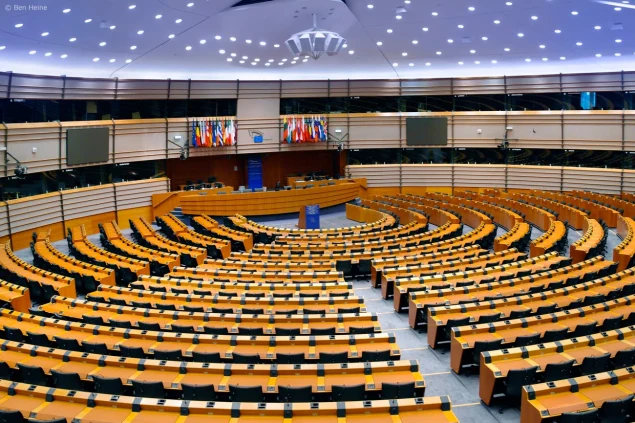
We are navigating turbulent times, yet the bioeconomy continues to gain momentum, demonstrating its resilience and relevance across the globe. In just the past month, we have seen remarkable developments from various regions – each reinforcing the growing recognition of bio-based solutions as a pathway to sustainability and economic transformation. Here are some of the latest developments shaping the future of the bioeconomy.
End of February marked an inspiring journey through the heart of innovation and history. The 50th anniversary of Asilomar provided a moment to reflect on the evolution of biotechnology and its ethical foundations – reminding us how scientific responsibility has shaped today’s advancements. The discussions delved into critical themes shaping the future of biotech, including:
- Biotechnologies beyond conventional containment – Exploring advancements that push the boundaries of controlled environments.
- Synthetic cells – The potential and challenges of constructing life from scratch.
- AI and biotech – How artificial intelligence is accelerating innovation in biotechnology.
- Pathogen research and bioweapons – Addressing biosecurity risks and the erosion of global agreements.
- Framing biotechnology – Shaping narratives and governance around the evolving role of biotech in society.
Bringing together over 300 top biotech stakeholders from around the world, the discussions reinforced the urgency of collaboration, innovation, and responsible governance in harnessing biotechnology for a sustainable future.
Meanwhile, across the globe, the Global Bioeconomy (GIB) meetings in Bloemfontein, South Africa, convened international stakeholders to advance a more sustainable, equitable, and resilient bioeconomy. Discussions focused on establishing global bioeconomy standards and metrics, addressing the specific challenges and opportunities in Africa, and unlocking financing mechanisms to support bio-based industries. The forum also emphasised the role of bioeconomy in tackling climate change, fostering inclusive economic growth, and ensuring responsible biotechnology development. In addition, the Global Bioeconomy Summit (GBS) in Nairobi last October brought further attention to Africa’s role in shaping the future of bio-based solutions. These engagements highlight the increasing global commitment to shaping a nature-positive, socially inclusive bioeconomy that supports sustainable development worldwide.
Across Asia, bioeconomy efforts are advancing rapidly. Malaysia, as the ASEAN Chair in 2025, is prioritiwing sustainability through bio-based industries, while Thailand is implementing its Bio-Circular-Green (BCG) Economy Model, part of the ASEAN Bangkok Goals of 2022, and promoting PLA-based biorefineries to tackle plastic waste. India is expanding its bioeconomy with the BioE3 policy to support biomanufacturing and biomaterials and the BioRise program to drive biochemical innovations and advanced biorefineries. China is making significant strides in biotechnology, with new policies supporting gene-editing, GM crops, and smart farming to enhance food security and sustainability. Japan, under its updated Bioeconomy Strategy (2024), is prioritising biomanufacturing, sustainable agriculture, and bio-based healthcare by advancing microbial design, biomass utilisation, and biofoundry infrastructureto expandbiopharmaceuticals and regenerative medicine.
The European Commission is also taking decisive steps in this direction. It has now announced its Work Programme for 2025, which includes an update to the EU Bioeconomy Strategy by the end of the year. This policy revision will be pivotal in steering Europe’s leadership in sustainable bio-based solutions, ensuring that investment, innovation, and regulatory frameworks align with the pressing environmental and economic challenges of our time.
Momentum is also growing in the Arab region, with Saudi Arabia launching its National Biotechnology Strategy in January 2024 as part of Vision 2030. The strategy focuses on advancing biomanufacturing, genomics, vaccine development, and plant optimisation, aiming to strengthen healthcare, food security, and sustainability. By 2040, it seeks to position the Kingdom as a global biotech hub, contributing significantly to economic diversification and job creation while enhancing regional and international collaboration in bio-based innovation.
Adding to the global momentum, Brazil is preparing for COP30 in Belém, where the bioeconomy will be an integral part of climate action. As the host nation, Brazil aims to highlight how sustainable economic models – rooted in innovation, traditional knowledge, and sustainable resource use – can drive both environmental conservation and economic growth. With the Amazon recognised as a vital contributor to global climate solutions, COP30 will build on discussions from previous G20 and UN climate meetings, emphasising the bioeconomy’s role in addressing environmental challenges and fostering a nature-positive economy.
Despite uncertainties on many fronts, the bioeconomy remains a source of optimism. Innovation, cooperation, and shared commitment are critical to building a more sustainable and resilient future. The momentum is building worldwide, and the opportunities ahead are greater than ever. The bioeconomy is no longer just an emerging concept – it is becoming a defining force in shaping a more sustainable and prosperous world.
Powered by:

Author
Jukka Kantola
Source
Supplier
Association of Southeast Asian Nations (ASEAN)
European Commission
European Parliament
European Union
Global Bioeconomy Summit
United Nations (UN)
World BioEconomy Association
Share
Renewable Carbon News – Daily Newsletter
Subscribe to our daily email newsletter – the world's leading newsletter on renewable materials and chemicals










